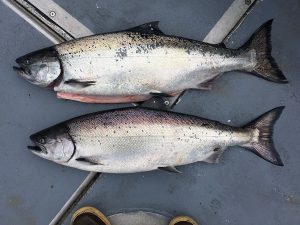Ropeless Crab Gear Trial
 The recent trial of innovative ropeless crab fishing gear off the California coast has ignited controversy among the Dungeness crab fishing community. The trial, which ran from April 9 to June 30, 2024, allowed a limited number of commercial crabbers to use ropeless gear to harvest during a time typically restricted to protect whales and crabs. While the technology has been hailed by some as a major breakthrough in reducing whale entanglements, others in the community view it as a complication in an already strained industry.
The recent trial of innovative ropeless crab fishing gear off the California coast has ignited controversy among the Dungeness crab fishing community. The trial, which ran from April 9 to June 30, 2024, allowed a limited number of commercial crabbers to use ropeless gear to harvest during a time typically restricted to protect whales and crabs. While the technology has been hailed by some as a major breakthrough in reducing whale entanglements, others in the community view it as a complication in an already strained industry.
The trial, the largest of its kind to date, focused on testing “pop-up” fishing gear designed to eliminate the need for traditional buoy lines, which are known to cause entanglements for marine mammals such as whales. Instead of using long lines of rope that extend from the ocean floor to a surface buoy, ropeless systems employ underwater cages that release to the surface when remotely activated by the fishermen. This eliminates the vertical ropes, which have been identified as a major hazard for migrating whales that can become trapped.
Whale entanglements in traditional crab fishing gear have become an increasingly urgent concern over the past decade, leading to frequent delays and shutdowns of the crabbing season in California. In recent years, crabbers have faced shortened seasons, which often fall during critical whale migration periods. As a result, the fishing industry has been under pressure to find solutions that balance both marine conservation and the economic sustainability of crab fishing. Proponents of ropeless gear argue that the technology offers a new way to allow crabbing to continue while protecting endangered species like humpback and blue whales.
 Maritime Injury Law Blog
Maritime Injury Law Blog











